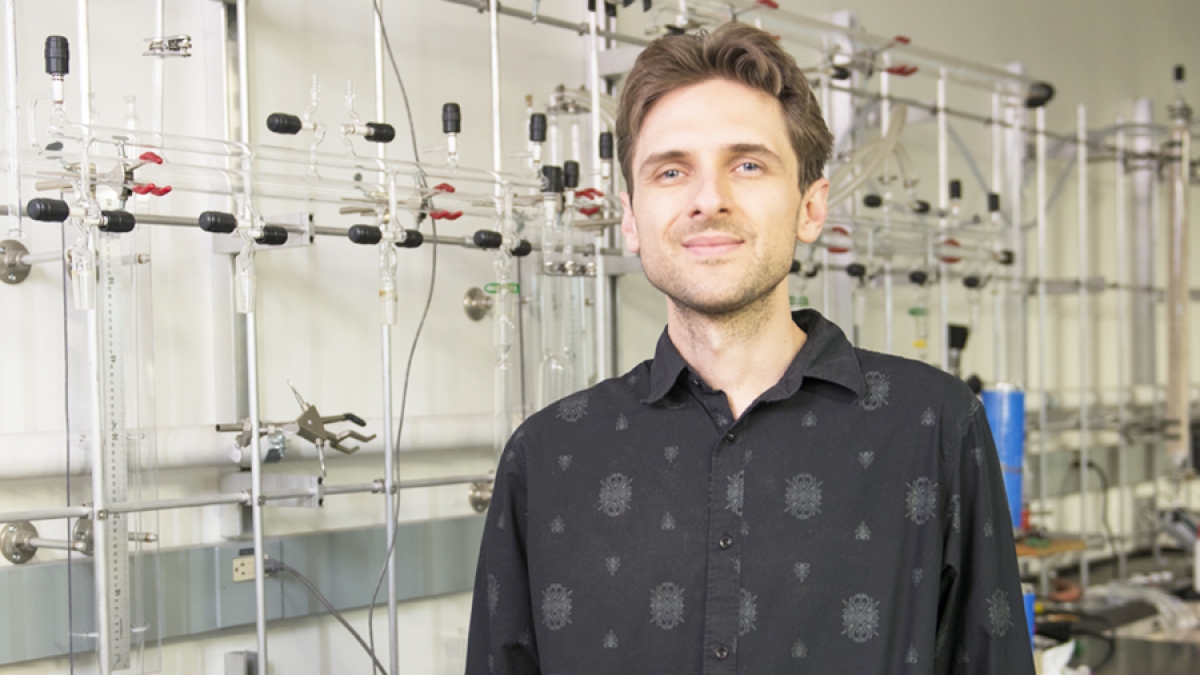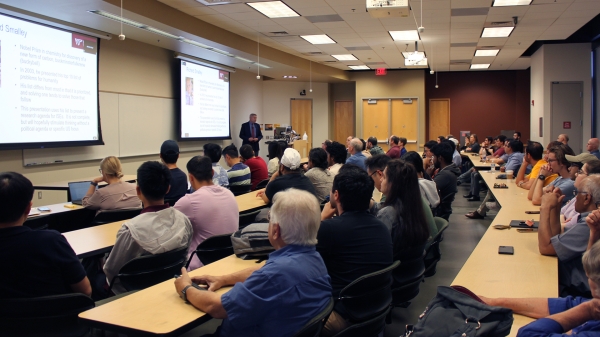ASU molecular sciences professor receives NSF CAREER Award

ASU School of Molecular Sciences Assistant Professor Ryan Trovitch
Ryan Trovitch, assistant professor in Arizona State University's School of Molecular Sciences, has been named recipient of a National Science Foundation (NSF) CAREER award, which is the most competitive and prestigious award given by the National Science Foundation to junior faculty. CAREER awards are designed to support teacher-scholars who most effectively integrate research and education within the context of the mission of their organization. Trovitch's award is titled "Development of Manganese Hydrosilylation Catalysts for Silicone Curing."
As part of a larger research effort on developing new chemical systems that address societal energy and sustainability challenges, Trovitch and his group are developing new low cost and sustainable catalysts for silicone curing. Silicones are a $15 billion per year worldwide industry and are used for everything from coatings, adhesives, contact lenses, kitchenware and more. The Trovitch group has invented a catalyst for silicone curing based on Manganese, which is much more abundant and is more than 500 times less expensive than the platinum metal in the catalysts that are currently used for this purpose.
Trovitch's award was made under the NSF's “SusChEM” initiative, which addresses the challenges of sustainable supply, production and use of chemistry to solve societally relevant problems. Catalysis represents a key component of any sustainable, or "green," chemical process since well-designed catalysts reduce energy requirements, reduce waste and increase overall reaction efficiency. The economic impact of catalysis in industrial production of synthetic chemicals, fuels, pharmaceuticals and materials runs into the tens of billions of dollars annually.
Trovitch's hydrosilation catalyst has attracted commercial interest and is in the process of being developed by the Sigma-Aldrich Chemical Company for potential technological applications.
“Dr. Trovitch uses fundamental molecular thinking to change chemical processes that are expensive and wasteful into ones that are inexpensive and sustainable” said Neal Woodbury, director of the School of Molecular Sciences.
The NSF award will allow Trovitch to further develop platinum replacement catalysts, investigate new mechanisms for silicone curing and search for new ways of preparing industrially useful silicones from biorenewable substrates.
More Science and technology

Associate professor shares her journey from NASA to ASU
From leading space missions to designing and building spaceflight hardware and training students in space science and engineering…

Famed systems engineer inspires ASU to tackle global problems
“Providing great talent with great opportunity can make a great difference.” Such was a key part of the message delivered by G.…

The science behind chronic stress
Stress comes in many shapes and sizes. There’s the everyday stress of preparing for a final exam or being stuck in traffic. And…